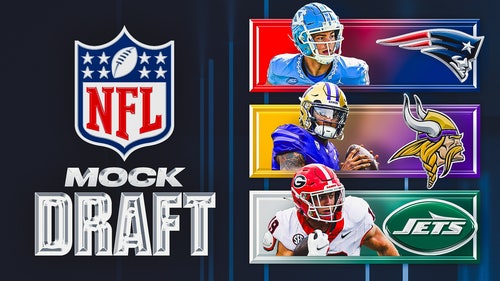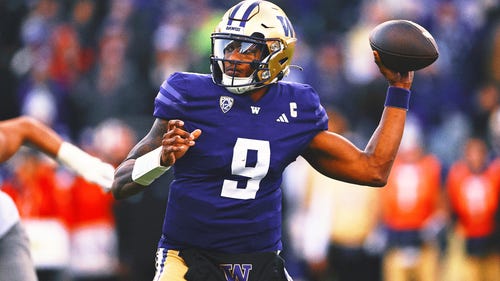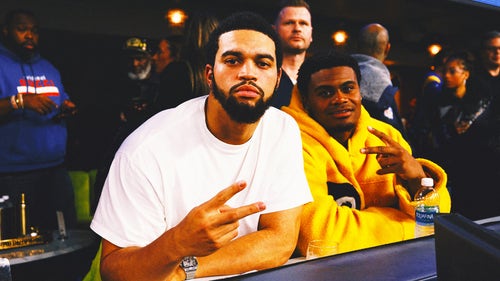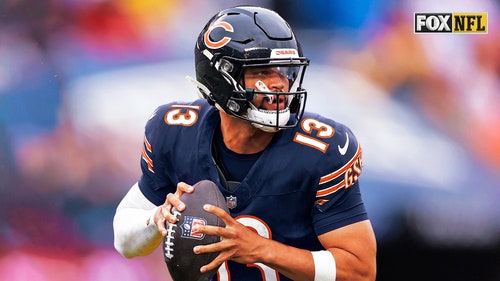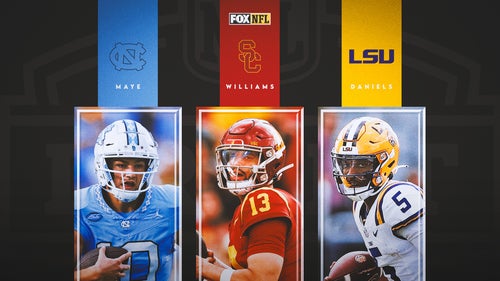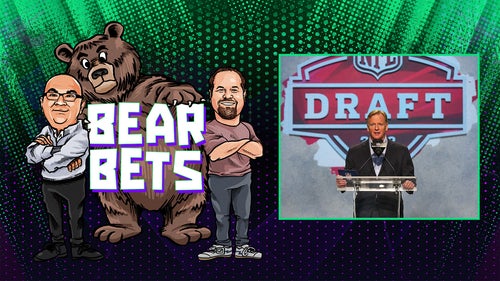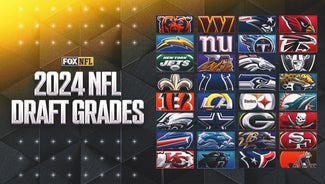
NFL runs into new issue with suspension of Cowboys' Hardy
The NFL, once criticized for being too lenient on players who commit domestic-abuse violations, is now being ripped by many who believe the league is being too hard on Greg Hardy.
And as the pendulum swings to find a medium that's harsh enough yet fair enough, Hardy's appeal of his 10-game suspension could serve as a defining moment to establish just how tough the league should be on its players -- even when the law can't touch them.
On the one side of this dispute, the NFL will argue Hardy's suspension is in line with Roger Goodell's new domestic policy, which called for six games only as a loose guideline. In his memo establishing a stricter policy, Goodell clearly stated aggravating factors could nudge a suspension higher. One of those aggravating factors he listed was the use of weapons, and the league said its investigation revealed Hardy threw Nicole Holder onto a futon that was covered with "at least four semi-automatic rifles."
The NFL is already anticipating the NFL Players Association's argument that Hardy should be suspended under the "old" policy, with the union's suggestion the standard back then was a two-game suspension.
"Commissioner Goodell noted that Hardy engaged in conduct detrimental to the league," the league wrote in its release announcing the suspension of the Dallas Cowboys' defensive end, "and that a suspension of this length would be appropriate under any version of the Personal Conduct Policy or its predecessors."
The NFLPA believes it has a solid argument to counter that statement.
It comes in the form of a ruling from federal judge David Doty, who rejected arbitrator Harold Henderson's logic in upholding the league's suspension of Adrian Peterson. Henderson believed the guidelines of the "new" policy (quotes added because the league has been adamant there are no old and new policies, only a strengthened one) could be applied to Peterson, even though his offense occurred before Goodell made the changes. Henderson concluded the "new" policy was consistent with the "old" one in that Goodell had broad powers to impose a suspension of any length.
Doty disagreed with Henderson's logic and instructed the parties to go through the appeal process again. That never occurred because the NFL reinstated Peterson earlier this month.
All of this argument about legal precedents clouded the issue that led to this point: The NFL's inadequate punishment of offenders. And the struggle will continue with Hardy's case.
The NFLPA will go forward on the appeal with Doty's ruling in its back pocket. The union will surely argue there's no precedent for a 10-game suspension for a first-time offender under the previous guidelines of the policy. Even Ben Roethlisberger, who was suspended for what Goodell deemed were multiple sexual-assault offenses, received a six-game suspension that was reduced to four games. Adam Jones was once suspended for a season, though that was due to multiple offenses. No matter how much the NFL tries to argue Hardy's suspension is in line with previous practices, the fact of the matter is it's not.
But that's OK. This is a new landscape in a league of ever-increasing popularity and the backlash after the initial suspension and the Ray Rice video showed the NFL wasn't doing enough.
In Hardy's case, the league's inclusion of details in its press release showed they're being more thorough in their evaluations.
The NFL cited four instances in which it claimed Hardy used physical force against Holder: It claims he knocked her into a tub, threw her on a futon, put his hands around her neck and shoved her into a wall.
Perhaps if there was video that corroborated these claims of Hardy's offenses against Holder, no one -- not even Cowboys fans -- would be arguing for a little more leniency. Even the prosecution's stating Holder refused to cooperate with the criminal case because of a civil settlement, and the fact Hardy's attorneys refused to provide the NFL with a copy of that settlement, apparently didn't have much of an impact on those being critical of the 10-game suspension.
Hardy has already served his time, they're arguing. He sat out 15 games last year, they say. OK, but Hardy agreed to go on the commissioner's exempt list and was paid his full $13.116 million last season. Taking back some of those wages isn't the same or nearly as simple as suspending him right now. Last year's exempt-list fiasco involving Hardy and Peterson was a unique circumstance.
This is now about setting the proper guideline for punishment in cases of domestic-violence violations. The NFL has made it clear it will be stern when its beefed-up investigative unit claims to have found evidence a player threatened a woman with semi-automatic weapons, threw her into a tub and onto a futon and put his hands on her neck. That intention, regardless of the appeals process and perhaps a legal process to ensue in Hardy's case, is a good thing.
But the NFL is still paying the price for its inadequate handling of the Rice case, and the union is still fighting for its players' rights while not condoning anyone's actions. Hardy's appeal could help set the new precedent for just how hard the NFL should come down on offenders.
Some clarity, like the NFL's increased penalties, would be a good thing.






































































































































